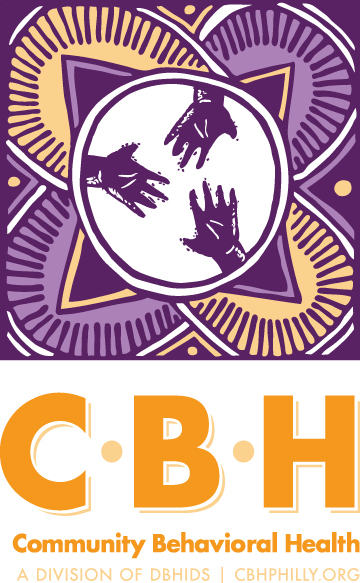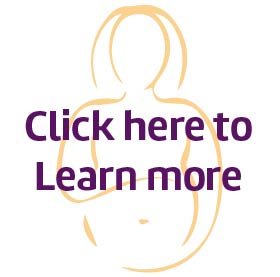The MGH Center for Women’s Mental Health is a consortium of expert faculty who are dedicated to advancing the research and treatment of psychiatric disorders associated with female reproductive function. Our faculty are excited to share our evidence-based practices over the coming months.
We welcome you to the program and invite you to explore this page to learn more about our faculty and what you can expect during the calls and courses.
Contact us at mghcme@mgh.harvard.edu with any questions.

If you are interested in participating in this program
please contact Carol Larach at carol.larach@phila.gov
Registration Requirements
Eligible applicants must meet one of the following criteria:
- Current mental health and substance use outpatient services and/or integrated care services providers located in Philadelphia County and working under contract with Community Behavioral Health. Contracted services include:
-
- Mental Health Outpatient Programs (Adult/Child)
- Drug and Alcohol Outpatient Programs
- Mental Health and Drug and Alcohol Outpatient Programs
- Drug and Alcohol Partial Hospitalization Programs
- Federally Qualified Health Centers
- Health District Centers
- Clinician in a CBH contracted outpatient Level of Care with a master’s degree or higher, including counseling psychology, clinical psychology, social work, family therapy, nursing (CRNP), psychiatry, OB/GYN, family medicine, pediatrics.
Candidates must be committed to developing and implementing behavioral health services to pregnant and birthing persons. As such, candidates must submit a brief proposal describing how the organization proposes to integrate perinatal psychiatry services into its existing array of services. Completing the training and developing behavioral health services for this population may position your organization as a designated provider for perinatal psychiatry.
Meet our Faculty
 |
 |
| Lee Cohen, MD Course Director Dr. Cohen is Director of The Ammon-Pinizzotto Center for Women’s Mental Health and Associate Chief of Psychiatry for Philanthropy and Department Communications at Massachusetts General Hospital. He is also the Edmund and Carroll Carpenter Professor of Psychiatry at Harvard Medical School. He completed his residency training and fellowship at the Massachusetts General Hospital. He is a national and international leader in the field of women’s mental health and was among the founders of the field of Perinatal and Reproductive Psychiatry. His work spans the domains of research, teaching and clinical care in the area of treatment of mood and anxiety disorders with subspecialty interest in psychiatric disorders associated with female reproductive function. |
Marlene Freeman, MD Course Director Marlene P. Freeman, M.D. is a Professor of Psychiatry, Harvard Medical School and the Abra Prentice Foundation Chair in Women’s Mental Health at Massachusetts General Hospital.She is the Associate Director of the Center for Women’s Mental Health at Massachusetts General Hospital and the Medical Director of the MGH Clinical Trials Network and Institute (CTNI).Dr. Freeman completed medical school at Northwestern University Medical School. She completed residency at the Harvard Longwood Psychiatry Residency Program and a research fellowship in the Biological Psychiatry Program at the University of Cincinnati College of Medicine. Her research and clinical expertise is in the areas of mood disorders and women’s mental health. She also has had clinical and research interests in the areas of nutrition, integrative medicine, and mental health. |
 |
| Mercedes Szpunar, MD, PhD Keynote Address Mercedes Szpunar, MD, PhD completed the Medical Scientist Training Program at the University of Rochester School of Medicine & Dentistry in 2014. Her PhD thesis focused on the impact of stress on breast cancer progression and metastasis at the level of the tumor microenvironment. She graduated from the University of California, San Diego (UCSD) Psychiatry Residency Research Track and the UCSD Women’s Reproductive Mental Health clinical training program in 2018. She went on to complete a Department of Veterans Affairs (VA) Advanced Fellowship in Women’s Health in 2020. Her most recent project, based at the San Diego VA, was designed to characterize mood disturbances, PTSD, and anxiety in perinatal women veterans, as well as examine neuroendocrine and inflammatory changes in this cohort. Recent honors include acceptance to the American Psychiatric Association Research Colloquium for Junior Investigators in 2018 and the American Society of Clinical Psychopharmacology New Investigator Award in 2020. |
Program Agenda
December 1, 2021
12:00 – 12:15pm
Introduction
Carol S. Larach, DrPH, MPH, MSEd
Director of Integrated Care Programs, Community Behavioral Health
12:15 – 12:20pm
Welcoming Remarks
Faith Dyson-Washington, PhD, MBA
Chief Executive Officer
12:20 – 1:05pm
Keynote Address
Mercedes Szpunar, MD, PhD
Staff Psychiatrist, Massachusetts General Hospital and Instructor in Psychiatry, Harvard Medical School
1:05 – 1:30pm
Q&A and Closing Remarks
1:30pm
Adjourn

December 2, 2021
Perinatal Psychiatry:
In-Depth Modules for Enhanced Approaches
This course will focus on the diagnosis and treatment of psychiatric disorders in women across pregnancy and the postpartum. Specialized knowledge is necessary to tailor treatments to reproductive events such as pregnancy, pregnancy planning, and the postpartum.

February 1, 2022
Educational Consultation Call with
Marlene Freeman, MD
at 10:00 AM EST

February 2, 2022
Psychiatric Disorders in Women:
Diagnostic and Treatment Considerations Across the Female Lifespan
This course will focus on the diagnosis and treatment of psychiatric disorders in women across the reproductive lifespan. Specialized knowledge is necessary to tailor treatments to reproductive events such as pregnancy and pregnancy planning, the postpartum, breastfeeding, the menopausal transition, and menstrual cycle related mood dysregulation.

March 16, 2022
Educational Consultation Call with
Lee Cohen, MD
at 10:00 AM EST

Learning Objectives for Our Interactive Courses
Perinatal Psychiatry: In-Depth Modules for Enhanced Approaches
Major Depressive Disorder in Pregnancy and the Postpartum
Describe critical research findings in reproductive psychiatry that inform clinical care
Recognize the current knowledge gaps in reproductive neuroscience with respect to perinatal depression
Receive an update regarding reproductive safety of psychiatric medication during pregnancy and management strategies for screening and treatment of postpartum depression
Bipolar Disorder: Considerations Across the Reproductive Lifespan
Frame the treatment of reproductive aged women with bipolar disorder from the standpoint of reproductive safety
Discuss the relative safety of pharmacologic treatments used in bipolar disorder in consideration of pregnancy
Consider multiple and patient-centered variables in treatment selection for pregnant and reproductive-aged women with bipolar disorder
Premenstrual Dysphoric Disorder (PMDD)
Identify evidenced based treatments for PMDD, including psychotropic, hormonal and lifestyle modification options
Describe the pathophysiology of PMDD
Recognize the diagnostic criteria for PMDD outlined in DSM-5
The Menopausal Transition and Depression
Distinguish normal physical, hormonal and emotional changes at menopause from pathophysiologic conditions occurring during the menopausal transition
Discuss the pathophysiology of and the role of hormonal changes in psychiatric illness emerging during the menopausal transition
Identify appropriate treatment options for mood and anxiety disorders in midlife women
Substance Use Disorders and Posttraumatic Stress Disorder in Women of Reproductive Age
Identify the etiology of co-occurring PTSD and SUD in women
Discuss screening for and diagnosis of co-occurring PTSD and SUD in women
Describe best treatment modalities for co-occurring PTSD and SUD in women
ADHD in Women
Discuss general risks of stimulant use during pregnancy and lactation with their patients with ADHD
Create a tailored risk/risk analysis of stimulant use vs. risk of stopping treatment for their patient with ADHD
Describe the non-pharmacologic treatment options available to their patients with ADHD
Psychiatric Disorders in Women: Diagnostic and Treatment Considerations Across the Female Lifespan
Psychiatric Disorders During Pregnancy
Discuss critical research findings in reproductive psychiatry that inform clinical care
Describe the current knowledge gaps in reproductive psychopharmacology over the last decade
Explain current treatment algorithms for screening and treatment of psychiatric disorders during pregnancy
Postpartum Mood and Anxiety Disorders
Describe and apply the risks/benefits safety of psychiatric medication during the postpartum and breastfeeding context
Identify strategies for screening and treatment of postpartum depression
Define the presentation and treatment of postpartum psychosis; and describe and assess the vulnerability for mood episodes in women with bipolar disorder and acute treatment and preventative strategies
Sorting Through the Data: Where do patients and providers go for information?
Identify reliable resources for information on the reproductive safety of medications
Discuss the strengths and limitations of the Pregnancy and Lactation Labeling Rule (PLLR)
Use basic tools for the evaluation of reproductive safety data in the medical literature
Substance Use Disorders in Pregnancy and the Postpartum
Discuss the pharmacologic treatments of substance us disorders in pregnant and postpartum women
Explain the importance of screening, assessment and treatment of comorbid psychiatric conditions in women with SUD
Describe the psychosocial and environmental factors in the practice of “low barrier psychiatry” for pregnant and postpartum women with substance use disorders
Specialized Psychotherapies for Pregnancy and Postpartum
Discuss the types and value of psychotherapy in consideration of perinatal mental health
Describe the research on evidence-based psychotherapy for perinatal mental health
Identify common barriers to psychotherapy and novel strategies to address the gaps in perinatal mental health treatments
Medication Teratogenesis and Pregnancy Complications
Identify the timing and impact of medication exposures on fetal development
Describe the knowledge gaps in our understanding of medication safety
Demonstrate a general understanding of common obstetrical complications



